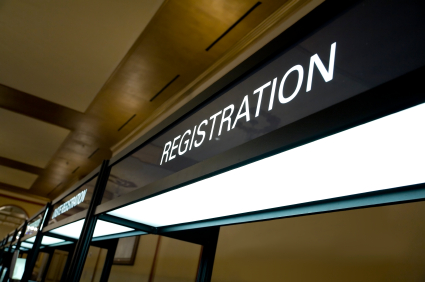**I am a member of the Career Collective, a group of resume writers and career coaches. Each month, all members discuss a certain topic. This month, we are talking about job-hunting “rules” to break and old job-search beliefs. Please follow our tweets on Twitter #careercollective. You can also view the other member’s interesting posts at the end of the article.
+++

Despite a wealth of great job-hunting advice, many prospective job seekers are still clinging to outdated job-hunting and resume writing guidelines that hinder their search for a job. If you’ve been sending your same old resume from 10 years ago with a “Dear Sir or Madam”, then you’ve probably learned that these methods have become obsolete.
If any of the following job hunting problems match you, then you need to implement corrective measures as soon as possible if you want to achieve success in 2011:
1. Not studying your competition
Candidates fail to check out their competition when they start their job search. They reason that their generalized resume worked in the past and that it will continue to work in the future, but that just is not the case any longer. You resume will be stacked against incredibly high skilled competition who probably have seen and done things that you present as standout attributes on your resume.
If you have a diverse set of skills, you’ll need to go the extra mile to get into your chosen career. You’ll need to establish connections and contacts with people in the industry to help fill in any career gaps you have and to boost your education and work experience. And you’ll need a compelling resume that clearly develops a connection to your prospective employer.
2. Not caring about your online identity
Social media is the way of the world now, and like it or not, it’s not going anywhere and people pay a lot of attention to it. Who do you think an employer is going to choose, the guy with the drunken Facebook profile picture or the business professional LinkedIn page? 10 years ago no one thought about having themselves Googled, no one really even knew what Google was but now you have to have an online profile to get noticed. You have to make yourself an online brand and highlight yourself above the pack.
3. Disregarding trends in resumes
If you can’t get past the old resume template with your list of qualifications, then you are going to find the job market in 2011 to be very harsh. Companies receive hundreds of resumes a day, so it becomes critical for potential employees to document the impact of their work and to back up their accomplishments through quantitative means. For a business to hire you they want to make sure that you are going to positively impact their business, and that means on the bottom line, are you going to make their business more profitable.
You have to have something on your resume that shows how you have positively impacted growth in one way or another. For executives or senior-level employees, personal branding has become the newest trend in the job hunt. This is a delicate process and you will need someone who understands developing a branded persona. You have to become the expert in your field.
Hopefully these tips will help you get past anything that was holding you back and put you on the road to new employment!
+++
Read the posts below for other great advice/ideas/tips from these top career bloggers:
- Juice Up Your Job Search, @debrawheatman
- It’s not your age, it’s old thinking, @GayleHoward
- Want a Job? Ignore these outdated job search beliefs @erinkennedycprw
- Job Search Then and Now, @MartinBuckland @EliteResumes
- Break the Rules or Change the Game? @WalterAkana
- The New: From The Employer’s-Eye View, @ResumeService
- Job Search: Breakable Rules and Outdated Beliefs, @KatCareerGal
- Job Hunting Rules to Break (Or Why and How to Crowd Your Shadow), @chandlee @StartWire,
- Shades of Gray, @DawnBugni
- 3 Rules That Are Worth Your Push-Back, @WorkWithIllness
- Your Photo on LinkedIn – Breaking a Cardinal Job Search Rule? @KCCareerCoach
- How to find a job: stop competing and start excelling, @Keppie_Careers
- Be You-Nique: Resume Writing Rules to Break, @ValueIntoWords
- Modernizing Your Job Search, @LaurieBerenson
- Don’t Get Caught With an Old School Resume, @barbarasafani
- How Breaking the Rules Will Help You in Your Job Search, @expatcoachmegan
- Beat the Job-Search-Is-a-Numbers-Game Myth, @JobHuntOrg
- 25 Habits to Break if you Want the Job, @careersherpa

**I am a member of the Career Collective, a group of resume writers and career coaches. Each month, all members discuss a certain topic. This month, we are talking about common job search misconceptions. Please follow our tweets on Twitter #careercollective. You can also view the other member’s interesting posts at the end of the article.
+++
Getting ready for an interview is often the most stressful part of the hiring process. Many job seekers do not take the time to properly prepare for an interview. This can lead to more than a bad answer to an interview question. Not taking the time to prepare can make you late, nervous and less likely to land the job.
Preparing for an interview is as simple as following a few common sense guidelines:
1. Where are you going: Be sure to do a dry run to the interview location. Whenever possible make the dry run during the same time of day as the scheduled interview, or make sure your GPS is working the day before you program it–just in case. This will allow you to easily locate the office without worrying about traffic or detours.
2. What are you bringing: Carefully review any guidelines set forth by the hiring manager. Bring extra copies of your resume, your portfolio (if applicable), a list of references and anything else requested. Prepare these items in advance to prevent forgetting items. It is also a good idea to keep clean copies of your resume in your car in case of an emergency.
3. What are you wearing: Try on each item that you will be wearing to the interview. Insure the clothing fits properly, is clean, pressed and damage free. Don’t forget to check socks and shoes.
4. Grooming: If your hair, mustache or beard needs trimming take care of it several days before the interview. Leaving this to the last minute can cause delays.
5. Phones: OFF! Consider yourself out of the running if your phone goes off during the interview… really out of it if your ring tone is “Baby Got Back”. Be smart and turn your phone off during your interview.
6. Questions: It is a mistake to assume that the only person asking question is the hiring manager. Instead, carefully craft a list of 2 to 5 questions to ask the interviewer. These questions should be thought provoking and demonstrate your knowledge of the company, its product or service and website.
7. Answers: Many interviews begin with the same questions: What do you hope to do? What are your goals? What is your greatest strength/weakness? Where do you see yourself in 5 years. Put some time and effort into thinking about these questions and prepare your answers in advance.
8. Eat, Sleep, Relax: Neglecting your health by failing to eat or sleep properly before your resume is a mistake. Try to put yourself in a relaxed state of mind. The more relaxed you are, the better the interview will go.
Other common sense suggestions include researching the hiring manager, contacting your references and bringing along a pen and paper for notes. Preparing for an interview doesn’t take much time, but it can have a big impact on your day.
++++
Read on for more great advice from Career Collective members. Don’t forget to follow our hashtag on Twitter #careercollective.
5 Misconceptions Entry-Level Job Seekers Make, @heatherhuhman
How “Interview Savvy” Are You?, @careersherpa
Employers Don’t “Care”, @ValueIntoWords
Misconceptions about Using Recruiters, @DebraWheatman
15 Myths and Misconceptions about Job-Hunting, @KatCareerGal
Are You Boring HR? @resumeservice
Job Search Misconceptions Put Right, @GayleHoward
Who Cares About What You Want in a Job? Only YOU!, @KCCareerCoach
How to get your resume read (sort of), @barbarasafani
The 4 secrets to an effective recruiter relationship, @LaurieBerenson
Job Interviews, Chronic Illness and 3 Big Ideas, @WorkWithIllness
The secret to effective job search, @Keppie_Careers
Superstars Need Not Apply, @WalterAkana
The Jobs Under the Mistletoe, @chandlee
8 Common Sense Interview Tips @erinkennedycprw
Still no job interview? @MartinBuckland @EliteResumes
Misconceptions about the Hiring Process: Your Online Identity is a Critical Part of Getting Hired, @expatcoachmegan

How many times have you found yourself in this situation: several days prior, you had an interview. It seemed to go well and the interviewer informed you that they would ‘get back to you.’ You went home, excited, but as the days passed with no call, you begin to question every aspect of the interviewing, wondering where you went wrong.
This happens more often than many HR professionals would like. Relax. Sometimes a busy schedule of interviews and work sometimes gets in the way of them calling you back. Learning techniques aimed at discovering how to make employers call you back is an easy and beneficial addition to any job seekers trunk of tricks.
- Don’t Expect It: Don’t ever assume that you will get a call back. Instead, make it a point to discuss the point of next contact before finishing the interview, meeting or phone call. This can be as simple as asking when an appropriate time would be for you to follow up. Many job seekers are leery of this, feeling that it will make them appear pushy; however, politely asking for a follow up isn’t being pushy. I think it shows motivation and Always ask for a follow up. Never leave it to chance.
- You Are Responsible: At the end of the day, you, as the job seeker, are the one responsible for the follow up, after all, it is you that wants the position. Take responsibility for the part you play in follow up meetings and calls by asking for them, being polite is subsequent contact and following through on any promises you make.
- “I’ll Get Back To You” isn’t enough: “I’ll get back to you’ may be the five most dreaded words in the job seeking business. Don’t ever leave a meeting or interview on this note. If a potential employer uses this line, ask them when! If they cannot provide you with a specific time frame for a follow up, ask when it would be appropriate to follow up yourself. Again, don’t be afraid to schedule your follow up.
- Keep Calling: If you were unable, or afraid, to schedule a follow-up, wait three days and follow-up yourself. Again, many job seekers shy away from this tactic, but remember that the interviewer or HR manager is busy as well and a gentle reminder is not harmful. Be respectful whenever leaving a message and always be consistent.
Getting that all-important call back can be difficult and waiting for it can be even worse. Instead of leaving it up to fate, take matters into your own hands. Be proactive by scheduling follow-ups. Be polite, but assertive, when asking for a follow-up call or meeting. Don’t ever be afraid to follow-up yourself.
Waiting is an unfortunate part of finding employment. If you are like me, waiting for anything can be excruciating. You can make this waiting a bit easier to endure by learning how to make an employer call you back. The peace of mind a scheduled follow-up can give you will make the waiting game much easier.

There has long been a debate regarding references and whether or not to include them in a resume. Many applicants are uncomfortable providing the information up front, preferring instead to simply state that references are available upon request.This is an outdated method and I always encourage clients NOT to write that on their resume, rather bring them with you to the interview. Whichever route you choose, it is critical you be aware of what information you are providing to potential employers as well as their ability to check that information. In other words, check your references because you never know who does.
References typically fall into two categories: personal and professional. Professional references are preferable as they give a potential employer the ability to confirm our work history. Personal references work well for those with little work history. The important thing to remember is that both types of references can be checked.
When offering references, be sure to carefully follow these three guidelines.
- Provide complete contact information: When providing a reference, be sure to provide complete contact information. This includes full names, addresses, phone numbers and email addresses (when possible). Also include employment dates, job titles and supervisor names. Failure to provide complete information gives the appearance of attempting to avoid the references being creference information for people who do not know they are being included in a reference list. It not only puts them on the spot but failure to call and receive approval can mean providing bad contact information or worse…a bad reference.
- Know what they are going to say: When asking permission to include a former supervisor or co-worker on your reference list, take the opportunity to ask what they will say. While this may seem awkward, ensuring a positive review or reference is the best way to control this portion of the application process.
- Lastly, some states or companies place restrictions on what information a former employer can provide. In many cases, they are allowed to only confirm employment dates and salary history. It is always a better idea to use a reference that can provide applicable information about your work history and ethics. Be sure to confirm that your references can provide additional information to potential employers.
Some say that not everyone checks references, but I think today with such easy access via internet and reference checking companies, most do. The point is, you don’t know. Because of this, it is critical that all reference information be accurate and positive.
References can be an excellent way to personalize your work history. Carefully select the people you would like to use as references and confirm with them what they will say so you are aware of the information that potential employers receive. By properly preparing them, being honest in your answers and the information you present, you have a much better chance of presenting the best possible ‘face’ to potential employers.

For any newbies to social networking, it might seem unusual to use a site such as Twitter to find a job. However, many people can find the right contacts on Twitter to help them to find a job–but it can be a little complicated in 140 characters or less? When using Twitter as a job search tool, it is best to keep content as neutral and professional as possible. Remember, as with anything you write and post online, once you “tweet” it’s out there FOREVER.
The first thing to do when starting up a Twitter account is to choose your user name wisely and word your 160-character bio in such a way that it becomes more searchable, or Google-friendly. Your bio should share a little bit about your career so that when other people look up that keyword, you can gain more traffic to your profile. An avatar will also make your profile more appealing. Choose a professional portrait or a simple picture in which you’re facing the camera and you are not accompanied by anyone else.
A basic rule of thumb when it comes to using Twitter as a job-search tool is to keep content favorable to anyone who might stumble across it – your tweets should balance your work and personal life. If you are looking for a job, you can tweet about the types of jobs in which you are interested. Also, you can tweet about your hobbies or interests so that employers get an idea of what you are like outside of work.
In that same vein, keep in mind that there are many recruiters who actually look to Twitter for new hires because it gives them something of a real-world perspective of what that person is like. In an extremely competitive economy, where plenty of people are qualified for the same job, many companies look at an applicant’s personality to see whether they would be a good fit in the company’s culture. In this case, it helps to follow these recruiters for the companies in which you are interested.
On a similar note, you can connect with these recruiters and industry leaders and show them your interest in their tweets. You can either “retweet” to forward their tweets along or you can address them directly by putting the @ symbol before their user name. By keeping in touch with these people, you will have access to the latest information in your industry. Therefore, when you are called in for a job interview, you will have that extra edge over other candidates by speaking confidently about your knowledge of their field.
Like any real-world networking situation, a Twitter presence cannot be expected to build overnight. It takes time and patience; however, by connecting with the right people, you might very well find your way to your dream career. The key to a successful Twitter profile is keeping it professional with a glimpse of your personality, hobbies and interests outside of work as well.

More and more of my clients are telling me that their first interview is a phone interview. Today, it is common to participate in a phone interview as a first step. Phone interviews are designed to weed out candidates who are not a good fit for the company, in spite of their qualifications. Taking the time to understand the phone interview process and following a few common sense tips can help make your phone interview successful. Remember, that in order to land the all-important in person interview, your first hurdle is the phone interview.
Phone interviews should be thought of as any other interview. This means preparing for a phone interview just as you would a ‘real’ interview. Researching the company to which you have applied, developing a list of thought provoking questions, being well rested and eating prior to the interview are all important steps–hint: don’t eat anything sugary before the interview or you might be likely to “crash” 20 minutes into your conversation–trust me on this one. You may even want your coffee handy as it will give you the boost you need, and keep you feeling and sounding alert. The phone interview is a unique opportunity to sell yourself using just your words. Be sure to have prepared responses to typical interview questions and be prepared to put your best ‘voice’ forward.
Just like an in-person interview has etiquette rules that must be followed, so does a phone interview. Being mindful of the etiquette of phone interviews is critical for successfully completing the stage of the interview process.
- Interview at home: This is the best way to ensure you have a quiet environment for the interview. Participating in a phone interview while driving, while at a restaurant or another noisy environment is a sure way to appear distracted and disinterested. Stay at home for your interview and make sure the house is peaceful. Stay in one spot to avoid sounding like you are walking or breathless. If sitting, sit straight up.
- Make adequate plans: Be sure to plan for the interview. If you have children, arrange for a caregiver during the interview process. Allow for adequate time before scheduling other interviews or appointments. Interruptions are in poor form so be sure to plan adequately in order to avoid them. Tell friends and family you will be interviewing at that time and NOT to call or stop by.
- Your voice matters: Because phone interviews are solely auditory, your voice matters. Be sure to focus not only on being articulate and intelligent but also on showing enthusiasm and excitement. As always, take your time when answering, but avoid sounding bored or slow.
- Be relevant: Interviews conducted over the phone have one major downfall for the applicant: it is easy to become complacent or to get off topic. Be sure to focus your answers on relevant information and experience. Avoid veering off topic or becoming too personal. Professionalism and relevance are critical for success.
- Smile. How many times have you talked to someone who was smiling on the other end of the phone? You can literally feel the smile. Smiling projects self-confidence and a cheery disposition.
If you prepare for a phone interview just like any other interview, the process becomes simplified. Being aware of what the interviewer is looking for, and tailoring your responses and answers to these needs is equally important.

Occasionally I get asked about recruiters, if the client should use one, how companies find them, and what recruiters do for companies. So here is a little article on what recruiters are about.
Making the best use of recruiters is something that almost all major corporations do now. Taking advantage of someone that is trained to sort through people means less hassle for the company—and why not? Less hassle means fewer headaches for those businesses.
Recruiters are people who have been trained specifically to hunt for various corporations to fill empty positions. They place ads in newspapers, online and in magazines to get the attention of any individual that might qualify for a job opening that they might have.
Taking the time to find recruiters who know what they are doing is the first important step for a company. Without excellent recruiters, corporations likely will not end up with the type of people that they want working for them.
Finding the best use of recruiters is up to the corporations that employ them, however, companies need to pick and choose where the need is for new hires in particular. In other words, will the corporation be expanding in Asia and the Western United States? If so, recruiters look for individuals who might have the ability to speak Japanese or Chinese, or are bi-lingual/fluent in other languages.
Another possibility would be if a company has decided to open a whole different operation. For example, Company A typically has been a restaurant chain. Now Company A wants to start some retail stores, and has the means to do it. Using a business plan, Company A will make the best use of recruiters by sending them out in whatever area it defines to find candidates to interview. Company A will have certain guidelines for the recruiters to go by, but the recruiters will pick the potential candidates.
Once the potential candidates are picked, recruiters will typically thin out the crowd somewhat before sending the candidates in for an interview. Recruiters take the time to sit and talk to each candidate for several minutes and are usually tuned in well enough to people that they can spot instantly who would work for the job, and who wouldn’t.
When you have recruiters who are available, it makes life much easier for the corporation. It is one less step that the Human Resources Department has to be concerned with. When there are so many other things that HR people have to do, using recruiters makes their job easier. For large corporations, making use of recruiters on a regular basis is a great benefit and saves them plenty of money. Smaller corporations on the other hand, may not see a benefit except once in a while—perhaps when searching for a new Chief Executive Officer or other high-ranking position.
So here is your little lesson on how recruiters help companies and what that means for you!

Although the Internet has been a boon to networking over the past decade or so, there is something to be said for a face-to-face networking over business lunches or trade shows. Adding a personal touch that might be missing from cold emails and Twitter, a lunch with a colleague can be an invaluable tool for you to use for everything from job leads to getting advice about a venture or idea. Trade shows offer the chance to speak with peers in your field. They know that you are interested in finding a place of employment.
People are more apt to share more personal details, and are definitely better able to read you as a person when sitting across from you at a business lunch, or spending a little time with you at a trade show. The chance to understand a person’s inflections, and gauge their sense of humor (or lack thereof), their personal foibles and idiosyncrasies or how much you might even want to engage with them outside the business milieu can only be had in a face-to-face encounter.
There are certain protocols involved when you are considering networking through business lunches or trade shows. Some are common courtesy: such as not interrupting a vendor while he’s currently dealing with a peer or customer. Wait for your opportunity to introduce yourself with a firm handshake and a business card, and get to know the person a little bit before you dive right into a lunch invitation. You might find that after a little personal interaction that you are no longer interested in getting to know someone better, or it might cement in your mind that this is someone to get on your side. Be interested in their products or sales pitch (it’s a hard, sometimes thankless job working a trade show), and ask pertinent questions.
Know that once you’ve proffered a lunch invitation to a potential networking connection, he or she may not want to talk business. Trade shows often carry with them grueling schedules, and lunch may be one of your new contact’s only break in the day.
You might consider making initial contact through the trade show venue, then following up with a lunch invitation. Be sure to let your contact know the agenda of lunch; don’t lull them into thinking a personal relationship or friendship is on the table when you’re really looking for a networking or job opportunity. Be sure to propose a firm date and time, with the offer of alternatives available. When you are networking through business lunches or trade shows do not invite anyone other than the main person (i.e., don’t show up with coworkers, or your girlfriend). Be prompt, be appropriately dressed, be courteous, and thank your invitee for their time. Once you have had lunch, remember, it is up to you to pick up the check, even if they insist. You certainly wouldn’t be impressed if you were invited to lunch and were expected to either pay or go halves; neither will they.







